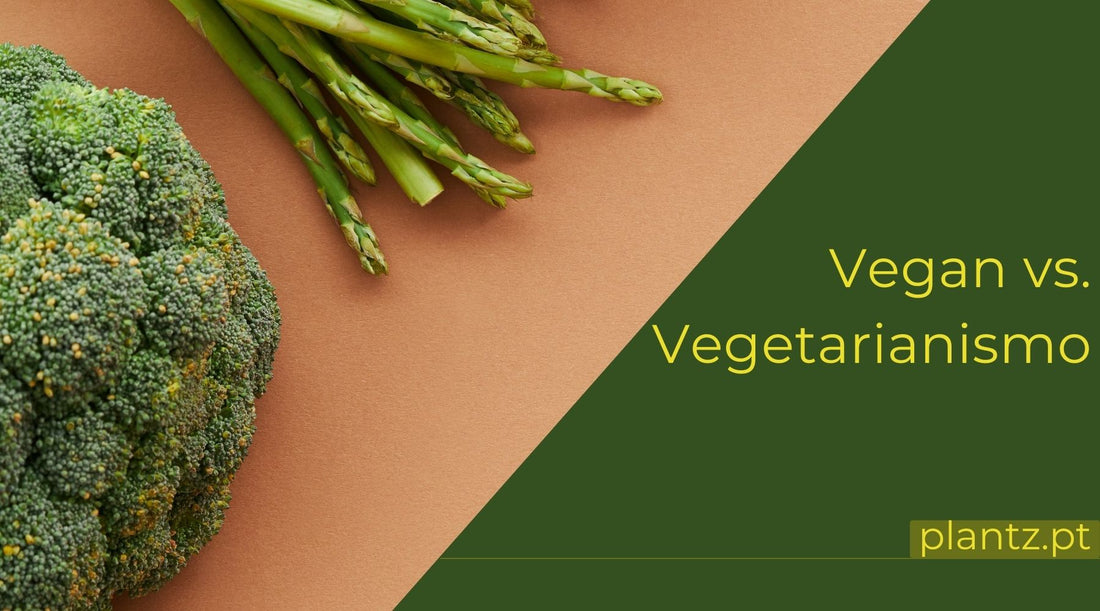There are many different options to choose from when it comes to diets. You can become vegetarian (plant-based diet), vegan or you can follow a normal diet. So what is the difference between vegan and vegetarianism? And which one is best for you?
This blog post will explore the differences between these two diets and help you decide which one is right for you!
What is a vegan diet?
A vegan diet excludes the use of all animal products, including meat, dairy products, eggs and other by-products. This type of diet can be traced back to ancient Greece, where it was adopted by prominent thinkers such as Plato and Socrates. In modern times, many people are choosing to adopt a vegan diet for ethical, environmental or health reasons.
Some vegans avoid animal products due to concerns about the way they are produced or the harm they can cause to animals and the environment. Others believe that their food choices can have a positive impact on their health and well-being.
Whatever your reasons for choosing a vegan diet, it's crucial to understand what this lifestyle entails and how you can transition successfully. With preparation and planning, you can easily create delicious, satisfying meals without eating any animal products!
What is a vegetarian diet?
Plant-based diets have become increasingly popular over the last decade, with more and more people choosing to eliminate animal products from their diet and switching to a life of more plant-based foods. Vegan diets eliminate all animal products, while vegetarian diets do not necessarily eliminate animal products, but emphasize the consumption of plants such as fruits, vegetables, nuts, seeds and whole grains.
Many of the health benefits attributed to such foods include lower risk of cardiovascular disease, lower body weight, reduced inflammation and a reduced risk of certain types of cancer.
Additionally, many people choose to incorporate plant-based diets into their lifestyle for environmental reasons, as these diets require less land and water than typical meat and dairy diets. Regardless of your reason, vegetarianism can be an excellent choice to improve your overall health and reduce your carbon footprint.
Related: Becoming Vegetarian
Main differences
As the debate continues over which diet is best for our health and the environment, it is essential to understand the critical difference between plant-based and vegetarian diets. A plant-based diet consists predominantly of plants; Most people use the term to refer to a 100% plant-based diet, but some people include small amounts of animal products. A vegan diet eliminates all animal products.
Donald Watson used the term "vegan" in 1944 to describe someone who completely abstains from all animal products for ethical reasons. It followed that a "vegan diet" eliminated all types of foods of animal origin, 100% of the time. Over time, more and more people began to adopt the vegan way of eating for ethical, environmental, or health reasons. While a plant-based diet is more flexible, a vegan diet is a stricter eating method that eliminates all animal products.

Advantages and Disadvantages of the Vegan Diet
There are many advantages to following a vegan diet. One of the main benefits is that it can improve your overall health. For example, a vegan diet has been shown to reduce cholesterol levels and help maintain a healthy weight. Additionally, this diet is typically rich in fiber and antioxidants, boosting your immune system and protecting your body against disease.
However, there are also some drawbacks to following a vegan diet. One of the biggest concerns is that getting enough protein from plant-based sources alone can be challenging. In fact, vegan diets can sometimes lack essential nutrients such as iron, calcium and vitamin B12. Therefore, it is essential to carefully plan your meals and snacks to ensure you get all the nutrients you need.
If you're considering making the switch to a vegan diet, many resources are available to help you get started. There are cookbooks, online recipes, and even vegan meal delivery services that can make the transition easy and delicious! Whether you do it for your health, the environment, or the animals, a vegan diet is a great choice. Just do your research and plan to ensure you're getting all the nutrients you need.
Advantages and disadvantages of the Vegetarian Diet
These diets are usually very high in fiber, which can help regulate digestion and prevent constipation. Fiber is also beneficial for heart health, as it helps reduce cholesterol levels and keep arteries unclogged. Additionally, vegetarian diets are often comprised of vitamins and minerals that are essential.
The drawbacks are that a plant-based diet can sometimes be low in protein, especially if you don't eat tofu, legumes and other protein-rich plant foods often. This can make it difficult to maintain muscle mass, especially if you exercise regularly.
Some people find that they miss the taste of meat and dairy when they switch to a plant-based diet. Although there are many delicious plant-based foods, it can take some time to get used to the new flavors.
If you are thinking about becoming vegetarian, do your research and talk to your doctor first. This way, you can be sure you're getting all the nutrients you need to stay healthy and happy.
Other types of special diets and their health benefits
1. Pescatarian Diet
A pescatarian diet avoids meat, dairy and eggs, but includes fish. For some people, the pescatarian diet offers the best of both worlds: the health benefits of a plant-based diet with the added potential benefits of eating fish. Fish is an excellent source of protein and omega-3 fatty acids, which have been shown to reduce the risk of heart disease and stroke.
Additionally, fish is low in saturated fat and high in healthy unsaturated fats. Pescatarians also benefit from being able to choose from a wide variety of fish, including freshwater and saltwater options. Whether you're looking for health benefits or enjoy the taste of fish, a pescatarian diet may be right for you.
2. Flexitarian Diet
The flexitarian diet is a type of semi-vegetarianism that has become popular. As the name suggests, flexitarians are people who eat a primarily vegetarian diet, but which occasionally includes meat or fish. Proponents of the diet claim many benefits, including decreasing body weight, improving metabolic health, and reducing the risk of diabetes. Additionally, a flexitarian diet can help people reach recommended intakes of critical nutrients.
For example, the Dietary Guidelines for Americans recommend that adults consume approximately 85 grams of grains per day. However, many people struggle to achieve this goal. Flexitarians often find it easier to satisfy their whole grain intake because they regularly eat pasta, rice and other grain-based dishes. As a result, the flexitarian diet can actually improve diet quality and promote overall health.
Final thoughts
In general, vegetarians are more likely to follow a more complete diet than vegans, due to the fact that a vegan diet completely eliminates foods of animal origin. So what's right for you? If you're looking to cut out all animal products from your life, go vegan! If you want to facilitate a plant-based lifestyle, start with vegetarianism. Ready to make the change? Click here to see our ready meals.
What do you think? Have you tried any of these diets? What was your experience? Tell us in the comments below!
Frequently Asked Questions
What is refined sugar?
Refined sugar has become a ubiquitous part of modern diets, from processed snacks to sugary drinks. This type of sugar is produced through a process known as refining, during which sucrose that occurs naturally in certain plants, such as sugarcane, sugar beet and corn, is isolated and converted into granules. In addition to being used as an added sweetener in many foods, refined sugar can also be found under different names on food labels, such as sucrose or glucose.
However, despite its widespread use and popularity, there are important reasons to avoid consuming refined sugar. This type of sugar lacks the nutrients and minerals that are naturally present in fruits and vegetables. Furthermore, it contains no dietary fiber and is therefore essentially devoid of any beneficial nutritional value. Furthermore, excessive intake of refined sugar has been linked to several adverse health effects such as obesity, diabetes and heart disease.
What are processed plant foods?
Processed plant foods are products that have been altered or refined to improve their nutritional value or flavor. These foods can be created through various techniques such as freezing, drying and fermenting. Some of the most common processed plant foods include fruits, nuts, seeds, legumes, grains and spices.

